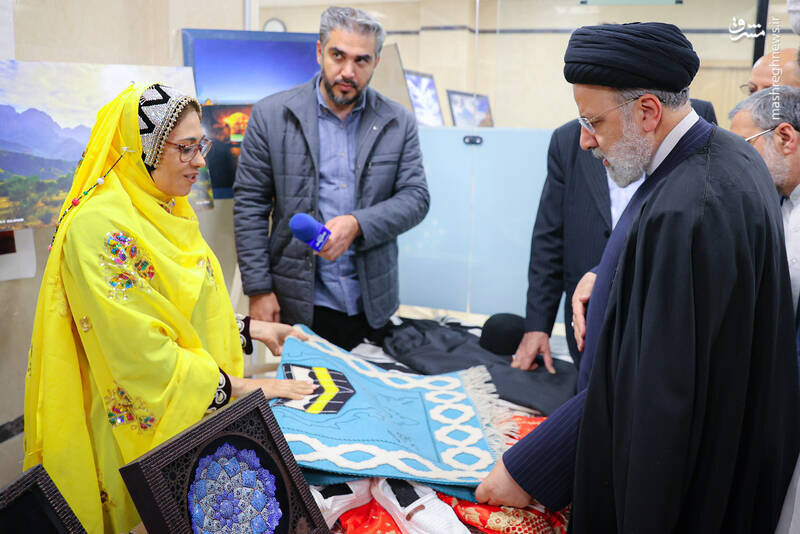Fars launches crafts job creation initiative in memory of President Raisi

TEHRAN - Fars province has initiated a project aimed at creating jobs in the handicrafts sector, in honor of Martyr President Seyyed-Ebrahim Raisi, who lost his life last week in a helicopter crash, with a pilot program starting in Kharameh county.
Speaking on Friday, the provincial Director-General of Cultural Heritage, Tourism, and Handicrafts announced the initiation of the project to create and transform jobs into handicrafts, named after Martyr Ayatollah Raisi.
“Raisi’s significant contributions in the fields of cultural heritage, tourism, and handicrafts are well-known,” Mohammad Sabet-Eqlidi noted. “Paving the way for enhanced public service.”
Sabet-Eqlidi emphasized that the “Shahid Jomhour” handicrafts job creation plan aims to foster entrepreneurship, development, and the flourishing of handicraft production.
“The pilot project will be executed in Kharameh County,” the director-general further pinpointed.
Shedding light on the details, he elaborated that the project will prioritize training, promotion, and market creation in various traditional craft fields, tailored to the interests and tastes of the people of the county.
The plan’s key objectives include boosting production, familiarizing locals with traditional arts, generating income, and enhancing the local economy, according to the official.
The initiative aligns with the national slogan of the year, “Production Leap, with Public Participation.”
Regarding singling out Kharameh, Sabet-Eqlidi explained that the county was chosen as the pilot site because, despite its historical reliance on agriculture, especially rice cultivation, years of drought have rendered farming unsustainable. Consequently, transitioning to handicrafts presents a new opportunity for the region, he added.
Moreover, the official outlined that the production and sale of handicrafts offer a golden economic opportunity for the local population, given the lower investment required compared to other sectors and the high profitability with accurate marketing strategies.
“Handicrafts such as traditional Carpet Weaving, Khatam Kari (marquetry), and Minakari (enamel work) will be taught as part of the project,” Sabet-Eqlidi winded up.
Fars province, located in southern Iran, boasts a rich heritage of traditional handicrafts that reflect its cultural and historical depth. The region is renowned for its intricate and diverse craftsmanship.
One of the most prominent handicrafts of Fars is Gabbeh weaving, a type of Persian carpet characterized by its simple, bold designs and vibrant colors. These hand-knotted rugs, often made by tribal artisans, are known for their thick texture and use of natural dyes.
Another significant craft is Khatam Kari (marquetry), an ancient Persian art form that involves inlaying delicate pieces of wood, bone, and metal into geometric patterns, commonly used to decorate boxes, frames, and furniture.
Minakari (enamel work) is also notable in Fars, where artisans create elaborate designs on metal surfaces, typically using rich blues and intricate patterns.
The handicrafts of Fars are not only a source of aesthetic pleasure but also an important aspect of the local economy, providing livelihoods for many artisans.
XF/AM
